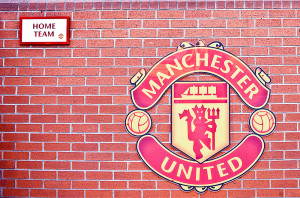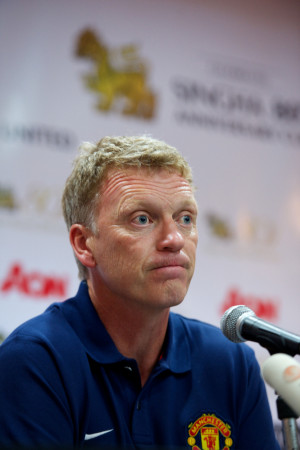6 Lessons For Marketers From Manchester United & David Moyes
I’m writing this post on holiday so am rather out of touch with recent events in the tech world. However, being English, I’m never that out-of-touch with what’s happening in the world of football (or soccer if you’re American or Australian), and recent events have made me wonder whether there are lessons to be learned […]
I’m writing this post on holiday so am rather out of touch with recent events in the tech world.

Credit: warasit phothisuk / Shutterstock.com
However, being English, I’m never that out-of-touch with what’s happening in the world of football (or soccer if you’re American or Australian), and recent events have made me wonder whether there are lessons to be learned from the rather ignominious reign of David Moyes at Manchester United.
For those of you not au fait with the beautiful game, David Moyes was the man brought in to replace Sir Alex Ferguson as the manager of Manchester United.
Ferguson had made United the most successful club in the history of the English game and one of a few truly global teams. Now, less than a year later, Moyes has been fired.
So, what can those of you who work with brands online, and particularly in social media, learn from this expensive farce?
1. Leverage Internal Knowledge & Resources
One of David Moyes’ first moves after being installed as manager was to transplant most of his back-room staff from his previous club, Everton. This, directly or indirectly, led most of the incumbent equivalents at Manchester United to leave.
The staff that left had won numerous trophies and knew United inside out; the team from Everton hadn’t won anything and had no experience dealing with the pressure at a club of that size.
When considering how best to utilise internal teams, agencies and advocates, make use of the built-up knowledge base within an organisation. For example, teach call-centre staff Twitter etiquette and have them deal with online enquiries and mistakes; if possible, empower true consumer advocates to do the same.
2. Admit Mistakes & Learn From Them

David Moyes. Credit: mooinblack / Shutterstock.com
Moyes’ last match in charge saw his team lose 2-0 to his previous club, Everton, for the second time this season — something that hadn’t happened for a very long time.
What almost certainly ensured his sacking was his rather naive view that his side hadn’t played that badly.
Moyes could learn a lot from the lean start-up philosophy, which encourages companies to fail fast and learn from their mistakes.
Brands shouldn’t be afraid to try things that might be a bit risky as that’s often the best way to find success.
If you look at many of the brands that were often used as case studies in failure in the early days of web 2.0, such as Dell, they are now the brands held up as beacons of brilliance. Dell learned from its mistakes and adapted accordingly.
3. Be True To Yourself
One of the things that seems to be generally accepted about why David Moyes didn’t work out is that he “lost the team” — essentially, the players didn’t believe in him. They felt that they knew better than him how Manchester United should play, and therefore, didn’t give him their all.
The same is true in any company — staff know when things don’t ring true. Never try to be something you’re not, because staff will quickly see through such illusions, followed closely by customers. For example, not every brand can be cool, nor should they try to be. David Moyes definitely wasn’t cool.
4. Choose Your Goals Carefully
In football, teams can only really buy new players twice a year. David Moyes started his tenure by utterly wasting one of these transfer periods, meaning he was behind before he’d even started. His mistake (and that of his boss) was to not pick realistic targets, or else to not set aside realistic budgets (which actually resulted in them paying more than they should have for one player).
Likewise, brands need to learn to set realistic goals, especially with regard to social media marketing. Before you embark on setting up accounts on Twitter, Facebook, Pinterest, Snapchat or whatever, ask yourself who is going to run it, who is going to create the content needed to keep it fresh, where the budget to promote it is going to come from, who is going to see that content and, most importantly, how it will help you sell your products or services?
5. Stick To What You’re Good At
Ultimately, David Moyes was sacked because results weren’t good enough. Whilst he had a very successful career at Everton, helping an average club punch above their weight, he was overwhelmed by the expectations and pressure of a truly world-class club; in short, he probably wasn’t the man for the job.
Brands that know their strengths and their weaknesses are the ones that will do best, whether on the football pitch or on Facebook.
6. Listen To Lego
A general rule in marketing life should be that if Lego picks up on a cultural trend or meme, it probably means something.
Rumours are rife at @ManUtd right now. Is that a taxi we see?@MENnewsdesk @GranadaReports @EamonnHolmes #DavidMoyes pic.twitter.com/glhbadAFFf
— LEGOLAND Manchester (@LDCManchester) April 21, 2014
Interestingly, United won their first post-Moyes match comfortably with Ryan Giggs, who has played for them for 20 years, taking the manager’s role. This serves as proof positive of lesson 1 above — or possibly just proof that no matter how bad you are, you’re unlikely to be as bad as Norwich.
Contributing authors are invited to create content for MarTech and are chosen for their expertise and contribution to the search community. Our contributors work under the oversight of the editorial staff and contributions are checked for quality and relevance to our readers. MarTech is owned by Semrush. Contributor was not asked to make any direct or indirect mentions of Semrush. The opinions they express are their own.
Related stories